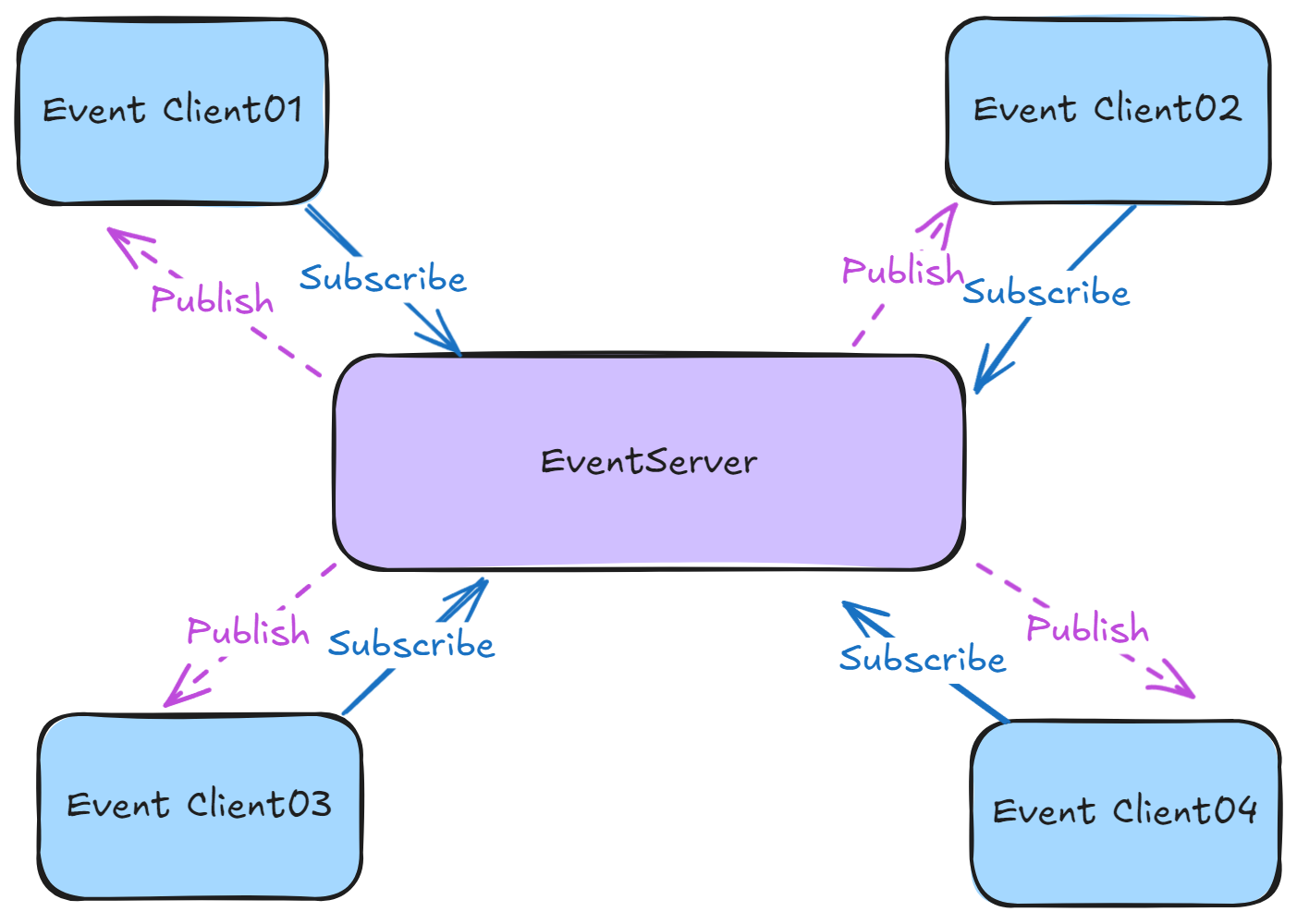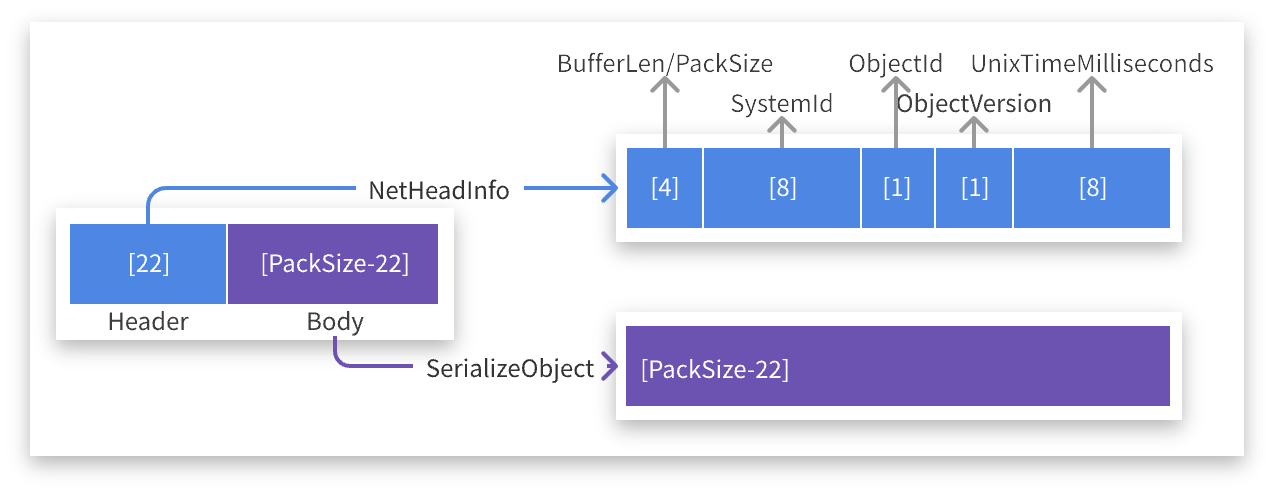English | 简体中文
Distributed Event Bus Implemented with Sockets, Supporting CQRS, and Independent of Third-Party MQ.
CodeWF.EventBus.Socket is a lightweight, Socket-based distributed event bus system designed to simplify event communication in distributed architectures. It allows processes to communicate through a publish/subscribe model without relying on external message queue services.
Command
Query
-
Lightweight: Does not depend on any external MQ services, reducing system complexity and dependencies.
-
High Performance: Direct communication based on Sockets provides low-latency, high-throughput message delivery.
-
Flexibility: Supports custom event types and message handlers, making it easy to integrate into existing systems.
-
Scalability: Supports multi-client connections, suitable for distributed system environments.
Data interaction is conducted through the TCP protocol. The protocol packet structure is as follows:
Install CodeWF.EventBus.Socket via the NuGet package manager:
Install-Package CodeWF.EventBus.SocketIn the server code, create and start an EventServer instance to listen for client connections and events:
using CodeWF.EventBus.Socket;
// Create an event server instance
IEventServer eventServer = new EventServer();
// Start the event server, listening on the specified IP and port
eventServer.Start("127.0.0.1", 9100);When the event service is no longer needed, call the Stop method to gracefully shut down the server:
eventServer.Stop();In the client code, create an EventClient instance and connect to the event server:
using CodeWF.EventBus.Socket;
// Create an event client instance
IEventClient eventClient = new EventClient();
// Connect to the event server and use eventClient.ConnectStatus to check the connection status
eventClient.Connect("127.0.0.1", 9100);Subscribe to specific types of events and specify event handling functions:
eventClient.Subscribe<NewEmailCommand>("event.email.new", ReceiveNewEmailCommand);
private void ReceiveNewEmail(NewEmailCommand command)
{
// Handle new email notifications
Console.WriteLine($"Received a new email with the subject '{command.Subject}'");
}Publish events to specified topics for subscribed clients to handle:
// Publish a new email notification event
eventClient.Publish("event.email.new", new NewEmailCommand { Subject = "Congratulations on winning the Github prize", Content = "We are delighted...", SendTime = new DateTime(2024, 7, 27) });Query a specific topic requires a receiving query end (producer) subscribed to the same topic. Upon receiving the request, it publishes the query result using the same topic:
eventClient.Subscribe<EmailQuery>("event.email.query", ReceiveEmailQuery);
private void ReceiveEmailQuery(EmailQuery query)
{
// Execute the query request and prepare the query result
var response = new EmailQueryResponse { Emails = EmailManager.QueryEmail(query.Subject) };
// Publish the query result using the same topic
if (_eventClient!.Publish("event.email.query", response, out var errorMessage))
{
Logger.Info($"Response query result: {response}");
}
else
{
Logger.Error($"Response query failed: {errorMessage}");
}
}Other ends can use the same topic to query (consumers):
var response = _eventClient!.Query<EmailQuery, EmailQueryResponse>("event.email.query",
new EmailQuery() { Subject = "Account" },
out var errorMessage);
if (string.IsNullOrWhiteSpace(errorMessage) && response != null)
{
Logger.Info($"Query event.email.query, result: {response}");
}
else
{
Logger.Error(
$"Query event.email.query failed: [{errorMessage}]");
}When no longer needing to receive certain types of events, you can unsubscribe:
eventClient.Unsubscribe<NewEmailNotification>("event.email.new", ReceiveNewEmail);When event processing is complete or you need to disconnect from the server, call the Disconnect method:
eventClient.Disconnect();
Console.WriteLine("Disconnected from the event service");- Ensure that the address and port number used by the server and client are consistent, and the port is not occupied by other services.
- In a production environment, the server should be configured to listen on a public IP address or an appropriate network interface.
- Considering network exceptions and service restarts, the client may need to implement reconnection logic.
- Depending on actual needs, you can extend the
EventServerandEventClientclasses to support more complex features such as message encryption, authentication, and authorization.


